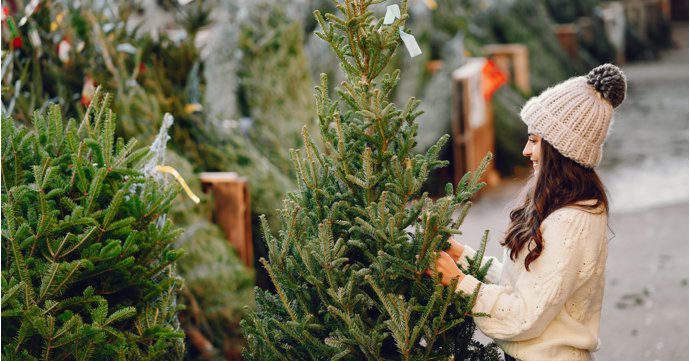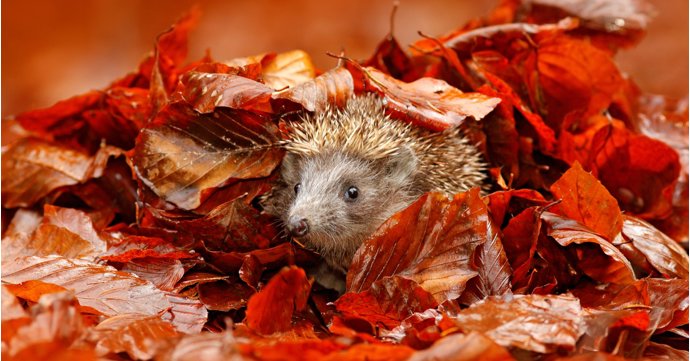As the weather in Gloucestershire heats up, and the summer sun casts some much-needed warmth and light on our outdoor spaces, it's finally the time to enjoy the fruits of your labour as your garden reaches its zenith.
But don't sit back just yet — there's still plenty to do to keep your garden looking fabulous during the summer months. SoGlos rounds up eight of the best things to do with your Gloucestershire garden this summer...
Look after your lawn
Summer typically calls for more frequent lawnmowing with gardening experts recommending a good cut at least twice a week. However, taller grass can withstand intense heat and drought much better, so don’t cut too close — you want to keep that glorious green.
Alternatively, if you're looking to encourage bugs to your garden, mow less and allow more native plants to flourish in your lawn, providing pollen, nectar and shelter for insects and other wildlife.
Get mulching

With the weather hotting up, it’s a clever idea to cover the surface of your soil to preserve as much precious moisture as possible. A range of materials, from old leaves and wood chippings to slate shards and sheet coverings, can be used as mulches to keep your soil fertile throughout the season.
Not only do mulches help soil retain moisture in summer, helping you to save water, suppress weeds and improve the soil around your plants, but it also gives your garden a neat, tidy appearance and can reduce the amount of time spent on tasks such as watering and weeding.
Ventilate and shade the greenhouse
Plants grown in glasshouses, conservatories, plastic greenhouses, polytunnels and garden frames all require sufficient shading and ventilation throughout the summer months, to prevent leaf temperature from tissue-damaging levels.
Leave doors, roof vents and side vents open so fresh air can circulate throughout the day. You can incorporate polyethylene mesh or netting inside the glasshouse, fixed with clips, to avoid completely blocking the sun; or install external blinds, which stop the sun's rays from passing through the glass. Alternatively, use shading paints on the outside glass which can be washed off again in early autumn.
Incorporate bedding plants

Bedding plants are great for creating colourful, decorative displays and filling gaps in borders, providing quick, easy-to-grow flowers and foliage that will last throughout summer.
Drought-resistant bedding plants have greater resilience to summer heat and require much less watering and general care. Bedding plants that flower for the longest time include cosmos, which are great for attracting bees; begonias, with their large flamboyant blooms; and sturdy, sun-loving geraniums.
Time to harvest
Depending on what you've been growing in the garden, the end of summer is a bountiful period for planters who have patiently waited for their harvest to ripen.
Gardeners can expect to pick an abundance of vegetables such as cucumbers, beans, carrots, beetroot, turnips, courgettes, sweetcorn, potatoes, pumpkins, peas, chillies, peppers and marrows; along with fruits like apples, blackberries, figs, peaches, pears, melons and blueberries, which should also be ripe for the picking — and ready to be made into some delicious summertime dishes.
Open an insect hotel

Whether you love or hate insects, they’re a fundamental part of our ecosystem and essential for protecting our environment — so why not open your very own insect or bee hotel?
Not only is it a wonderful way to connect with nature, but bees and insects are gardeners' friends, helping to pollinate everything from your ornamental flowers to your food crops. They also serve as a free natural pest control that saves the need for chemical solutions, with bugs such as ladybirds managing aphids in your garden so that your plants stay healthy.
Plant autumn bulbs
To provide a splash of colour in the garden when other plants are starting to fade later in the year, it's a good idea to start planting autumn-flowering bulbs towards the end of the summer season.
From autumn cyclamens and colchicums to dahlias, these plants create a stunning display while providing nectar and pollen for late-flying insects.
Take cuttings for next year
Summer is the ideal time to propagate what you already have growing in your garden, with cuttings easily taken from a number of plants including rosemary, lavender and other shrubby perennials — and a new plant grown from a cutting will frequently mature faster and flower sooner than a plant grown from a seed, meaning they'll be ready to pot up for autumn.
What's more, with many plants, you can propagate them again and again, giving you an endless supply of new plants to enjoy!





















